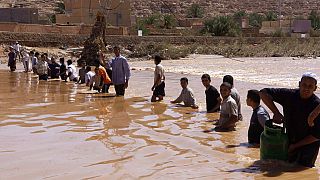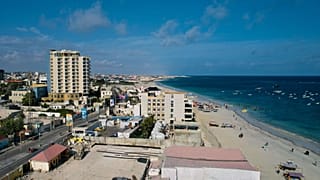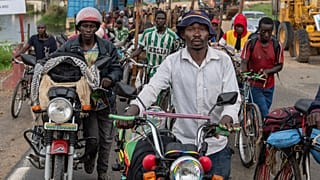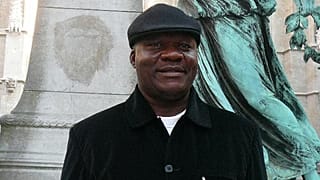Somalia
Thousands of people have been forced to flee their homes in central Somalia after the River Shabelle burst its banks in Beledweyne.
Heavy rain has led to flooding in the area, causing damage to towns and villages and the UN's humanitarian response agency (OCHA) warned of an increase in diseases such as cholera as local infrastructures are affected
Local resident, Abdihafid Mohamed Yusuf, shared his experience:
"We fled from the flash floods that submerged the city like so many others," he said.
"People ran out of the city to safety. For four days, the floods poured massively into the city."
Shopkeeper, Nur Abdulle Hassan, added that the heavy rains had impacted on trade.
"Our businesses have been badly affected by the massive flooding in Beledweyne and the movement of people. This has resulted in a reduction in the presence of our customers."
The flooding comes as international figures show a record number of internally displaced people worldwide with natural disasters accounting for 32.6 million such movements last year.
Deputy Governor of the Hiran Region, Hassan Ibrahim Abdulle, said almost the entire population of some regions have had to move out.
"Most of the inhabitants of the four districts of the town of Beledweyne are displaced because of the flash floods," he explained.
"90 per cent of the local towns have fled. 10 per cent are still in the town because they have been stranded or they live in the highlands."
The flooding comes in sharp contrast to months of drought which has killed tens of thousands of people and wiped out crops and livestock.
It is feared the rains could force many families into destitution.











00:42
UN condemns deadly drone strike on peacekeepers in Sudan’s Kordofan
01:58
Femicide not officially recognised in Kenya despite rising cases
01:24
UN chief calls on Eritrea, Ethiopia to respect border pact on its 25th anniversary
01:00
Central African Republic prepares for critical elections amid persisting instability
01:00
Chong Kal camp sees surge in displaced families amid Cambodia-Thailand conflict
00:03
Floodwaters devastate Gaza camps amid ongoing humanitarian crisis